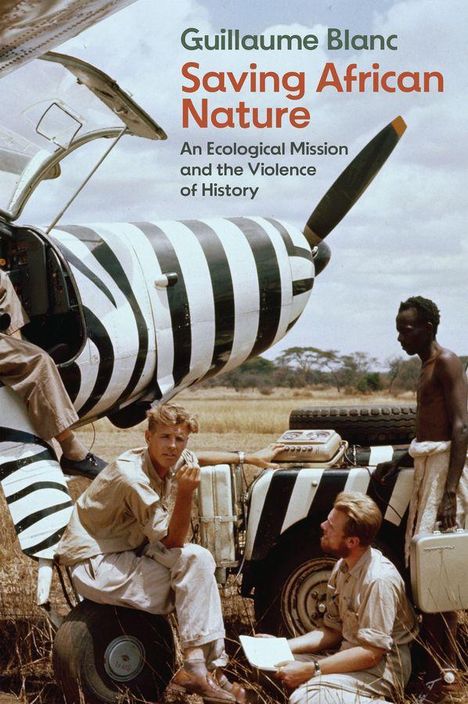Guillaume Blanc: Saving African Nature, Gebunden
Saving African Nature
- An Ecological Mission and the Violence of History
Sie können den Titel schon jetzt bestellen. Versand an Sie erfolgt gleich nach Verfügbarkeit.
- Übersetzung:
- Helen Morrison
- Verlag:
- Polity Press, 05/2026
- Einband:
- Gebunden
- Sprache:
- Englisch
- ISBN-13:
- 9781509568680
- Artikelnummer:
- 12541295
- Umfang:
- 308 Seiten
- Erscheinungstermin:
- 29.5.2026
- Hinweis
-
Achtung: Artikel ist nicht in deutscher Sprache!
Weitere Ausgaben von Saving African Nature |
Preis |
|---|---|
| Buch, Kartoniert / Broschiert, Englisch | EUR 26,93* |
Klappentext
During the colonization of Africa, European colonists set about creating game reserves in Africa, convinced that they would find in Africa a nature that no longer existed in Europe. After independence, and with the help of UNESCO and the WWF, African leaders continued to 'protect' the same nature, a nature that the whole world wanted to be pristine, wild and without humans - a timeless Garden of Eden. The consequences of this story are well known: millions of Africans were expelled from the land on which they had lived for generations in Zimbabwe, Rwanda, Uganda, Tanzania, Kenya, Ethiopia and many other African countries.
But how did this happen? Who organized this continuity between the colonial era and the era of independence? Guillaume Blanc answers these questions by immersing himself at the heart of a strange global ecological mission, launched in 1961: the 'African Special Project'. He tells the story of this project, but rather than following a single narrative thread, he brings to life four worlds: the world of gentleman experts who saw Africa as the world's last natural refuge; the world of East African colonists who were retraining as international experts; the world of African leaders who sought to control their peoples while satisfying the demands of their Western partners; and finally, the world of local farmers and their families living on the land who were forced to adapt or abandon their homes. These men do not speak of the same nature, but step by step, their worlds draw closer together until they meet - and this is where violence erupts.
This well-researched book lays bare the violence inherent in the creation of African game reserves and national parks and documents a hidden dimension of colonialism and its legacies. It will be of great interest to students and scholars in environmental history, political ecology and postcolonial studies, as well as to anyone interested in African nature and wildlife and the game parks that are visited every year by millions.
Biografie (Helen Morrison)
Helen Morrison ist forensische Psychologin und Autorin zahlreicher Fachpublikationen, die sich auch dank ihrer internationalen Vortragstätigkeit den Ruf einer weltweit anerkannten Koryphäe auf ihrem Gebiet erworben hat. Helen Morrison lebt mit ihrem Mann und ihren beiden Söhnen in Chicago.

